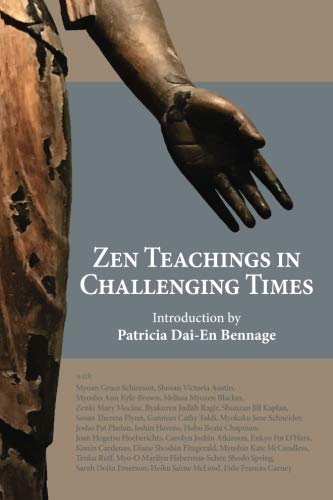Finding your suitable zen teaching is not easy. You may need consider between hundred or thousand products from many store. In this article, we make a short list of the best zen teaching including detail information and customer reviews. Let’s find out which is your favorite one.
Best zen teaching
1. The Zen Teaching of Huang Po: On the Transmission of Mind
Feature
Grove PressDescription
2. The Zen Teaching of Huang Po on the Transmission of Mind
Description
Book3. Training in Compassion: Zen Teachings on the Practice of Lojong
Description
Lojong is the Tibetan Buddhist practice that involves working with short phrases (called "slogans") as a way of generating bodhichitta, the heart and mind of enlightened compassion. Though the practice is more than a millennium old, it has become popular in the West only in the last twenty years or soand it has become very popular indeed, because it's a practice that one can fit very well into an ordinary life, and because it works.Through the influence of Pema Chdrn, who was one of the first American Buddhist teachers to teach it extensively, the practice has moved out of its Buddhist context to affect the lives of non-Buddhists too.It's in this spirit that Norman Fischer offers his commentary on the lojong slogans. He applies Zen wisdom to them, showing how well they fit in that related tradition, but he also sets the slogans in the context of resonant practices throughout the spiritual traditions. He shows lojong to be a wonderful method for everyone, including those who aren't otherwise interested in Buddhism, who don't have the time or inclination to meditate, or who'd just like to morph into the kind of person who's focused rather than scattered, generous rather than stingy, and kind rather than thoughtless.
4. The Zen Teaching of Bodhidharma (English and Chinese Edition)
Feature
Used Book in Good ConditionDescription
A fifth-century Indian Buddhist monk, Bodhidharma is credited with bringing Zen to China. Although the tradition that traces its ancestry back to him did not flourish until nearly two hundred years after his death, today millions of Zen Buddhists and students of kung fu claim him as their spiritual father.
While others viewed Zen practice as a purification of the mind or a stage on the way to perfect enlightenment, Bodhidharma equated Zen with buddhahood and believed that it had a place in everyday life. Instead of telling his disciples to purify their minds, he pointed them to rock walls, to the movements of tigers and cranes, to a hollow reed floating across the Yangtze.
This bilingual edition, the only volume of the great teacher's work currently available in English, presents four teachings in their entirety. "Outline of Practice" describes the four all-inclusive habits that lead to enlightenment, the "Bloodstream Sermon" exhorts students to seek the Buddha by seeing their own nature, the "Wake-up Sermon" defends his premise that the most essential method for reaching enlightenment is beholding the mind. The original Chinese text, presented on facing pages, is taken from a Ch'ing dynasty woodblock edition.
5. The Zen Teachings of Jesus
Description
6. Zen Teachings in Challenging Times
Description
Twenty-five leading American teachers of Soto Zen Buddhism speak to all who have suffered and sought spiritual guidance, revealing personal stories of sickness, death, political anger, fear, jealousy, environmental corruption, disillusionment, and longing for peace. They offer insight to how to stand with poise through the woes of existence and emerge transformed by our suffering. The transformative nature of Zen practice gives strength to face all possibilities. The entire book wears the mantle of Kanzeon, the goddess of mercy, the one who hears the cries of suffering and offers the loving hand of compassion to all living beings.7. The Zen Teachings of Master Lin-Chi
Feature
Columbia University PressDescription
Among the most important texts of Zen literature, the Lin-Chi lu details the insights and exploits of the great ninth century Chinese Zen master Lin-chi, one of the most highly regarded of the T'ang period masters. PEN Translation Prize-winner Burton Watson presents here an eloquent translation -- the first in the English language -- of this seminal classic, The Zen Teachings of Master Lin-chi. The work is an exacting depiction of Lin-chi's words and actions, describing the Zen master's life and teaching, and includes a number of his sermons. Because Lin-chi's school outlasted other forms of early Chinese Zen to become dominant throughout China to this day, this translation bears unique significance within the literature of this great Asian nation. With Watson's lucid introduction to the work, a glossary of terms, and notes to the text, The Zen Teachings of Master Lin-chi is a generously constructed and accessible model of translation that will stand as the definitive primary material on Lin-chi for many years to come.8. The Zen Teaching of Homeless Kodo
Feature
Wisdom Publications MADescription
Abandon your treasured delusions and hit the road with one of the most important Zen masters of twentieth-century Japan.Eschewing the entrapments of vanity, power, and money, "Homeless" Kodo Sawaki Roshi refused to accept a permanent position as a temple abbot, despite repeated offers. Instead, he lived a traveling, "homeless" life, going from temple to temple, student to student, teaching and instructing and never allowing himself to stray from his chosen path. He is responsible for making Soto Zen available to the common people outside of monasteries.
His teachings are short, sharp, and powerful. Always clear, often funny, and sometimes uncomfortably close to home, they jolt us into awakening.
Kosho Uchiyama expands and explains his teacher's wisdom with his commentary. Trained in Western philosophy, he draws parallels between Zen teachings and the Bible, Descartes, and Pascal. Shohaku Okumura has also added his own commentary, grounding his teachers' power and sagacity for the contemporary, Western practitioner.
Experience the timeless, practical wisdom of three generations of Zen masters.










